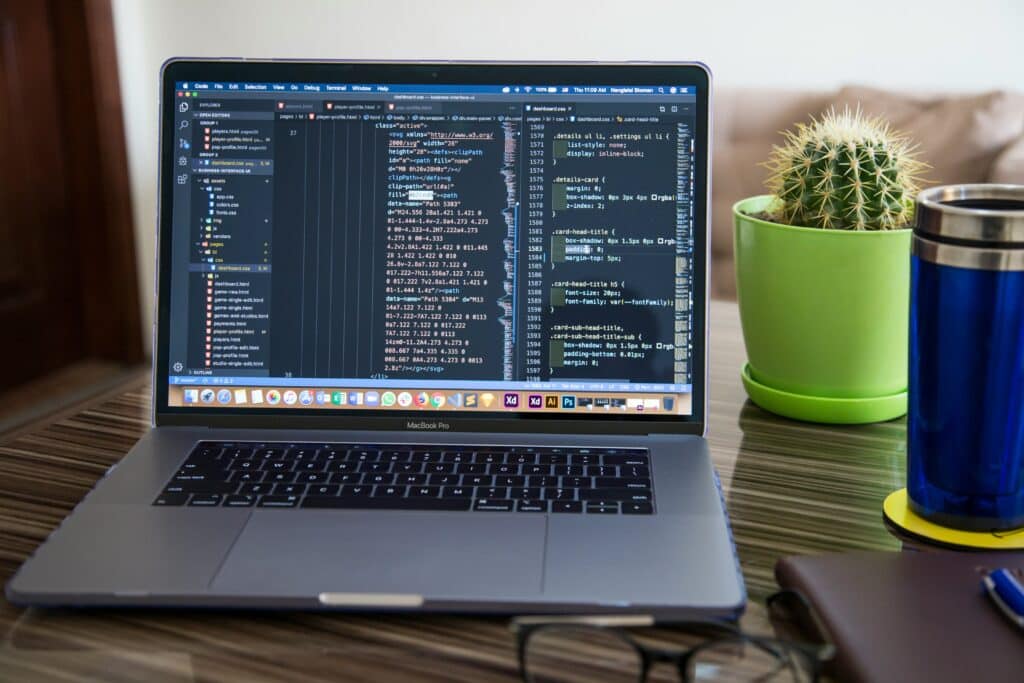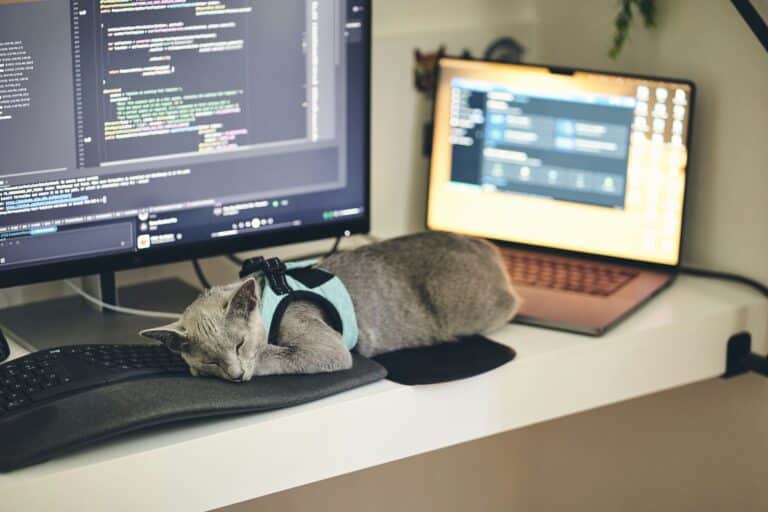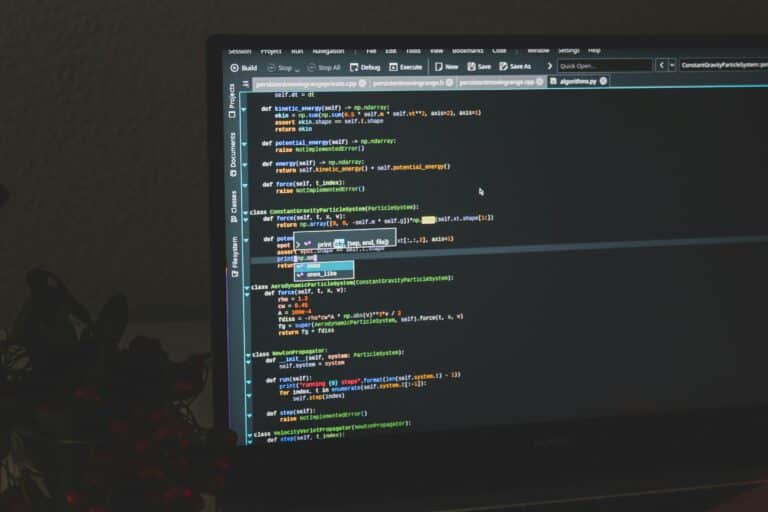The current digital age has seen a significant rise in the demand for skilled freelancers, especially in the realm of coding. With a vast array of open source tools at their disposal, coders can now work from virtually anywhere and at any time. The freedom that this offers is unparalleled, but it is not without its challenges. 🎯

Among these challenges is the seemingly ever-present specter of distractions – from the allure of social media to the occasional urge to binge-watch your favorite series. These distractions can significantly hamper your productivity as a freelance coder. And let’s face it; in a world where time is money, staying focused and efficient is key to your success. 💻
Understanding the Importance of Distraction-Free Coding
Before we dive into the best practices for boosting your coding efficiency, it’s crucial to understand why this is important. Efficiency in coding isn’t just about getting the job done quicker – it’s about the quality of your work, your mental health, and your professional growth.
First, coding with minimal distractions allows you to maintain a clear line of thought, helping you write cleaner, more efficient, and more robust code. Plus, the time saved can be used for learning new skills or taking on additional projects. 😌
Second, the ability to focus is vital for maintaining your mental health. Distractions can lead to stress and fatigue, which can have detrimental effects on both your personal life and your performance as a coder. By learning to manage distractions, you can maintain a healthy work-life balance, even when working remotely. 💪
Lastly, efficient coding practices can help boost your professional growth. Your ability to deliver high-quality code in a timely manner can earn you a good reputation in the freelancing world, paving the way for more opportunities and higher pay rates. So, distraction-free coding isn’t just about immediate productivity—it’s about your future as well. 🚀
Boosting Your Freelance Coding Efficiency: What to Expect
Now that you have an idea of the importance of distraction-free coding, let’s get into the specifics. In this blog post, we’ll be exploring some of the best practices you can implement to maximize your productivity as a freelance coder.
From creating a conducive work environment and setting clear boundaries to employing effective time management strategies and using productivity tools, we’ve got a lot in store for you. We’ll also delve into some of the psychological aspects of staying focused and managing distractions, offering insights into how you can train your brain for maximum coding efficiency. 💡
Ready to take your coding game to the next level? Join us as we dive into the world of distraction-free coding, and learn how you can boost your freelance coding efficiency for maximum productivity. Let’s get started! 🔍
Boosting Your Freelance Coding Efficiency: A Comprehensive Guide
As a freelance coder, your efficiency is directly tied to your bottom line. The more efficient you are, the more projects you can take on, and the more money you can make. But in today’s fast-paced, always-connected world, finding ways to stay focused and productive can be a challenge. This guide will delve into some of the best practices for distraction-free coding and maximizing productivity. So let’s dive in, shall we?
Understanding The Importance of Distraction-Free Coding
Before we delve into the strategies for distraction-free coding, let’s first understand why it’s so important. Coding requires a high level of concentration and precision. A single mistake can lead to significant issues in the code, which can take hours to debug and fix. Interruptions and distractions not only break your flow but also increase the likelihood of errors.
In a research conducted by the University of California, it was found that it takes an average of 23 minutes and 15 seconds to get back to a task after an interruption. That’s a significant amount of time wasted, and for a freelancer, time is money.
The implications go beyond just time and money, though. Constant interruptions and lack of focus can lead to stress and burnout. It can also hinder your learning and growth as a developer. So, maintaining a distraction-free environment is crucial for your overall well-being and career growth.
🔎 Related Video: “Why Distraction-Free Coding is Crucial” by Code Academy
Strategies for Distraction-Free Coding
Now that we understand the importance of distraction-free coding, let’s discuss the strategies you can implement to achieve it. These are tried and tested methods used by successful freelance coders around the world.
1. Create a Dedicated Workspace
Your environment plays a crucial role in your productivity. A dedicated, organized workspace free of distractions can significantly boost your coding efficiency. This doesn’t necessarily mean you need a separate home office. Even a specific corner of a room designated for work can do the trick. The key is to make it free of non-work-related items and potential distractions.
2. Use the Pomodoro Technique
The Pomodoro Technique is a popular time-management method that involves breaking your work into 25-minute intervals with five-minute breaks in between. After every fourth “pomodoro,” take a longer break of 15-20 minutes. This method is proven to improve mental agility and keep you fresh and focused.
3. Leverage Coding Tools
There are numerous coding tools available that can enhance your productivity. Integrated Development Environments (IDEs) such as Visual Studio Code, Atom, and Sublime Text, offer features like syntax highlighting, auto-completion, and error detection, saving you significant time and effort. Source control tools like Git can help manage and track changes to your code, preventing potential disasters.
🔎 Related Video: “Best Coding Tools for Efficiency” by Devs Life
Best Practices for Maximum Productivity
Boosting productivity is not just about eliminating distractions. It’s also about optimizing your processes and adopting best practices. Here are some that you can implement.
1. Plan Your Work
Before you start coding, spend time planning your work. Understand the requirements, create a rough design, and break the task into smaller, manageable chunks. This will give you a clear roadmap to follow and help you avoid getting stuck or overwhelmed.
2. Follow the DRY Principle
The DRY (Don’t Repeat Yourself) principle is a fundamental concept in software development. It means that you should avoid writing redundant code. Instead, create reusable components that can be used across different parts of your application. This will not only save time but also make your code easier to manage and debug.
3. Learn Keyboard Shortcuts
Keyboard shortcuts can save you a ton of time and make your work flow more smoothly. Whether it’s navigating through your code, selecting text, or executing commands, there are shortcuts for virtually everything. Spend time learning them, and you’ll see a significant boost in your productivity.
🔎 Related Video: “Essential Keyboard Shortcuts for Developers” by Traversy Media
Comparing Productivity Techniques: Pomodoro Vs. Deep Work
There are different productivity techniques that freelance coders can implement. Two of the most popular ones are the Pomodoro Technique and Deep Work. Let’s compare them:
| Technique | Description | Pros | Cons |
|---|---|---|---|
| Pomodoro | A time-management method that involves working in 25-minute intervals with five-minute breaks in between. | Helps maintain focus, reduces mental fatigue, easy to implement. | May not be suitable for tasks requiring prolonged concentration, frequent breaks can disrupt work flow. |
| Deep Work | A productivity method that involves focusing on a single task for a prolonged period without any distractions. | Allows for deep concentration, ideal for complex tasks, can lead to high-quality work. | Requires significant discipline, not suitable for tasks requiring collaboration or frequent communication. |
Each technique has its pros and cons, and what works best may depend on the individual and the task at hand. Experiment with both and see what works best for you.
So, there you have it – a comprehensive guide on boosting your freelance coding efficiency. Implement these distraction-free best practices and productivity techniques to maximize your output and propel your freelance coding career forward.
Conclusion
As we come to the close of this comprehensive article, it’s important to revisit the salient points that were discussed, understand their significance and apply this newfound knowledge to improve our overall understanding of software engineering, a domain that is continually evolving and constantly challenging the limits of innovation.
At the onset, we delved into the basic principles of software engineering, emphasizing the importance of developing software that is not only functional, but also reliable, efficient and maintainable. We underscored the pivotal role of a software engineer as someone who applies a systematic, disciplined and quantifiable approach to the development, operation and maintenance of software.
We then explored the different types of software engineering, such as system software, application software, and embedded software. Each type comes with its unique set of challenges and opportunities, and as software engineers, we need to adapt and learn to navigate these complexities.
Further, we talked about the various methodologies used in software engineering like Waterfall, Agile, Scrum, and Lean. We learnt that choosing the right methodology is crucial and can be the difference between a successful project and a failed one.
Then, we delved into the world of programming languages, including Python, Java, JavaScript, C++, and many others. We learned how each language has its own strengths and weaknesses, and it’s up to us to choose the right tool for the job.
We also looked at the importance of testing in software engineering. As we discussed, testing ensures that the software we create meets the user’s needs and is free of bugs that could compromise its performance or security.
In the end, we touched upon the ethical responsibilities of a software engineer, highlighting how crucial it is to adhere to these principles to ensure the creation of software that is not only functional and efficient, but also ethical and safe.
This journey through software engineering has been both informative and enlightening. As technology continues to advance at a breakneck pace, the role of software engineers is becoming increasingly important. We are the builders of the digital world, the architects of the future, and the torchbearers of innovation.
If this article piqued your interest in software engineering, or if you have any insights, comments or experiences you’d like to share, please feel free to leave a comment below.
Also, do not hesitate to share this article with your peers, colleagues, or anyone who may find it useful. Knowledge, after all, grows when shared. If there’s anything more you’d like to know or any topics you’d like me to cover in future, drop me a line below.
Remember, the world of software engineering is vast and full of opportunities. Stay curious, keep learning, and never stop pushing the boundaries of what’s possible.
Stay tuned for more articles, and until then, happy coding!
Source: Britannica 😊
Tags: #SoftwareEngineering, #Programming, #Python, #Java, #JavaScript, #Agile



